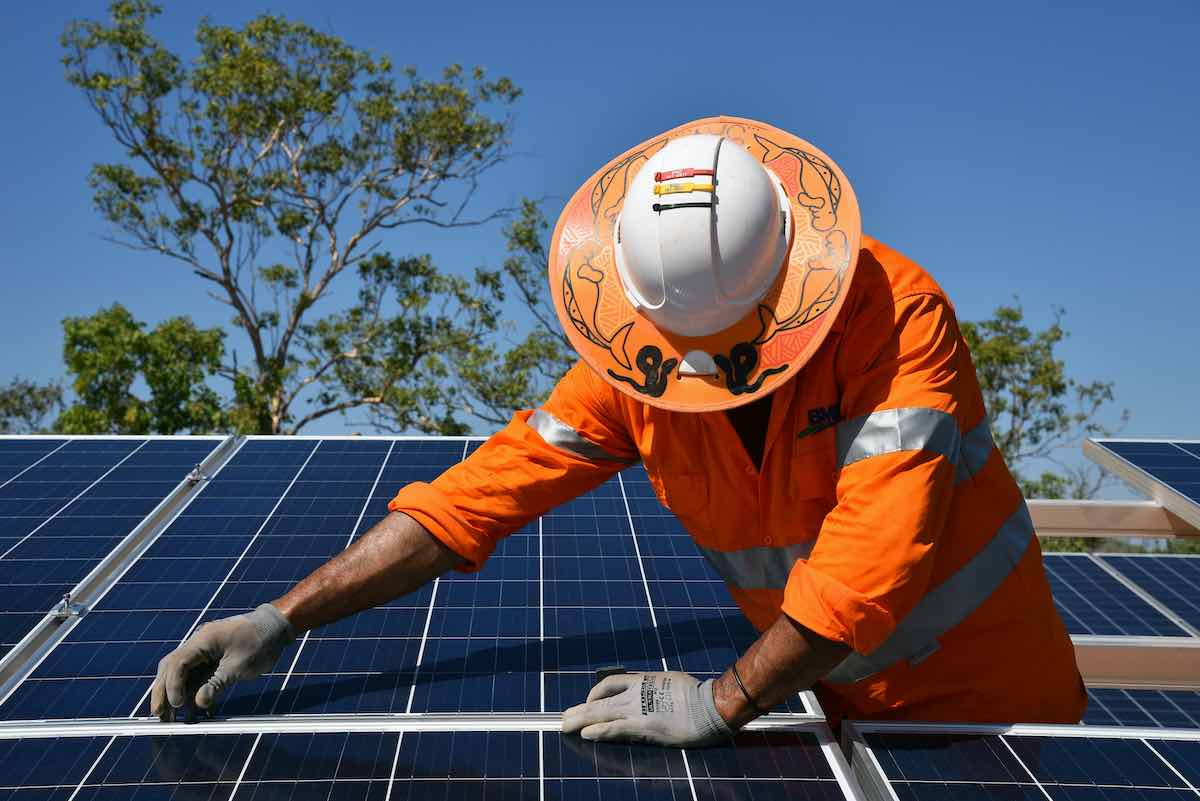Easing cost-of-living pressures and generating thousands of sustainable jobs could flow from a plan to harness the Northern Territory’s abundant sunshine.
Independent economic modelling released on Tuesday rejects a federal and NT government $1.5-billion plan to turn the Middle Arm peninsula into an industrial zone for processing gas, hydrogen and minerals.
The Recharging the Territory report instead outlines the benefits of an economy charged by large-scale solar energy that would slash power bills and bring sustainable industries to the region.
There is a “once in a generation opportunity” to build a clean industrial base in the territory, according to report author Tom Quinn, founding CEO of Future Business Council and former research head at Beyond Zero Emissions.
The plan recommends taxpayer subsidies for clean industry and energy efficient homes, instead of infrastructure for gas companies, dredging the harbour and the Elizabeth River, and clearing the peninsula’s woodlands and mangroves.
Some $127 million could install solar, insulation, and air conditioning for every public housing property.
Almost $400 million could cover a Darwin big battery and new investment in community microgrids across the NT, while climate-safe upgrades for every low-income household in the territory comes with a $225 million price tag.
Taking the Port of Darwin back into public ownership and establishing a sustainable industry hub would cost $495 million, according to the plan.
Australian Conservation Foundation spokesman Gavan McFadzean said to turn woodlands, wetlands and mangroves into an industrial zone would result in the NT missing out on opportunities from the “renewables revolution”.
“It would be a retrograde move that would condemn the territory to a rust bucket economy,” he said.
The alternative economic vision combines a broad roll out of solar energy, energy efficient upgrades to social housing, and training and support to develop a remote energy workforce.
These initiatives would ensure people on low incomes were not locked out of the energy transition, acting CEO of the Northern Territory Council of Social Services Caitlin Perry said.
The research published by the Environment Centre NT comes a day after Tamboran Resources announced testing had found a significantly larger Beetaloo gas resource, with a final investment decision to be made by June.
Chief Minister Eva Lawler said on Monday that development of the $17 billion Beetaloo Basin would enable the NT to start building the Middle Arm Sustainable Development Precinct.
Minister for Mining Mark Monaghan told reporters there was “no future” for renewable energy in the territory – or Australia – without low emission natural gas and carbon capture technology.
Source: AAP








